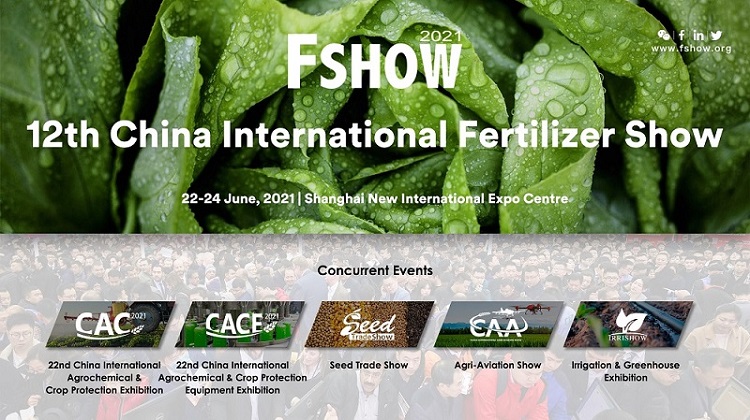
Exhibition time: 17-19 March, 2026 Shanghai, China
 中文
中文

Exhibition time: 17-19 March, 2026 Shanghai, China
 中文
中文
TBIO is one of the earliest Chinese manufacturers that accessed the organic agricultural input market. It is also a representational Chinese biostimulant industry player serving Europe’s sustainable agriculture and organic farming. During its 20-year market history, particularly over the last 10 years when farmland covered by organic agricultural inputs increased by 45% worldwide, especially in Europe, TBIO has focused on the development of organic products, having accordingly upgraded its product portfolio, which established its brand image and market position.

Classification of organic certification and contents of organic certification
Firstly, the terms “organic standard system” and “organic certification authority” need to be distinguished.
The most common organic standard systems include NOP (USDA), JAS (Japan) and EC Regulation 834/2007 (EU), which are established based on agriculture and organic food standards. Input confirmations according to different international organic standards are not an organic "certification" in the strictest sense, as the above standards do not include farm inputs in the scope of certifiable products.
Agricultural inputs are part of the chain of these organic standards. Based on these organic certification systems, many certification services are authorized for processing a certification. Common services organizations include ECOCERT, OMRI and CERES.
The basic conditions for obtaining organic certification relies on raw materials, production processes and final products, which should all be derived from natural substances.
Humic acid, a raw material obtained from young leonardite in Inner Mongolia, is produced in a selected agricultural area using an advanced and comprehensive automation process, therefore, ensuring that production is free from other chemical pollution. In the meantime, the production process has been proven to not cause any pollution.
For amino acids, the key to certification is ensuring that heavy metals and other harmful substances must stay within the limits during production. In a conventional production process, extraction is done via acid or alkali, but the final products may contain other chemical compositions, which, therefore, cannot be organic certified. However, the amino acid or polypeptide products produced via enzymatic hydrolysis can be certified organic, which is the most common organic certification of amino acids in the market. A polypeptide production process such as this has been developed by TBIO.
Secondly, organic certified products are “extendable,” meaning that products using organic certified raw materials and intermediates in the production process would default to a standard organic certification or can be subjected to a simplified submission process. For example, TBIO’s leading product, TBIO HUMIKEY, which is a molecular modified and activated product based on potassium humate combined with a screened and selected special functional group, is directly covered by the CERES organic certification.

The certification service organization, CERES, which is not a name of certification but a service organization
offering organic certification services, is authorized to provide certification services under NOP, EC and JAS.
TBIO’s current certifications and future plan
TBIO applied for the first CERES organic certification on humic acid in 2008. At the start of the certification process, it was quite difficult to directly communicate with the German side and the cost of certification was high. Fortunately, we took advantage of the existence of the Spanish company to gradually become familiar with the process, and we made the proper adjustments and controlled our production activities in accordance with the required process of organic certification. To utilize this, we made efforts to advance in the Spanish market, where we gradually gained the first-place occupancy rate in the high-end market sector.
At present, TBIO possesses organic certifications issued by OMRI and CERES covering humic acids, amino acids and algae products. In the years ahead, TBIO is prepared to do two actions. On the one hand, we will expand our product coverage of organic certification so that more novel products are covered. On the other hand, we will engage in more types of organic certifications, such as EC and JAS, to meet different market demands.
TBIO’s organic certification outlook
Generally speaking, TBIO’s organic certification strategy is a market-driven one. For example, when TBIO was initiating its European market exploration, it chose the locally influential CERES certification, but when exploring the South American and American markets, the OMRI certification was processed instead. Going forward, when it comes to the South American market, where, for example, Colombia, Chile and Peru export fruits to the Japanese market, the JAS certification will be required. Meanwhile, TBIO uses the organic certification process to regulate its production activities and inputs. Today, all incoming raw materials are traceable, while the production process is fully automated and production control is utilized at every step of production. A quality inspection is also carried out before shipment, ensuring efficient delivery to customers. Furthermore, the annual renewal of its organic certifications is more like a verification of TBIO’s own production standards.
It is worthy of note that some manufacturers went too far in their organic certification efforts, thinking that only organic certified products are good products or a product once organically certified will be a good product. Globally, mainstream fertilizers are still inorganic nutrients, such as NPK. Organic products account for a relatively small proportion and cannot be expected to solve all problems. Product research and development need to be implemented on a problem-solving basis. In the future, TBIO may be involved in organic-inorganic integration development. For example, we recently developed a modified humic acid and high potassium combo to solve the issues of coloring and sugar content. Manufacturers may need to think about organic certification more from a market perspective and in terms of product system requirements rather than simply demanding the organic certification of all products.
From AgroPages
